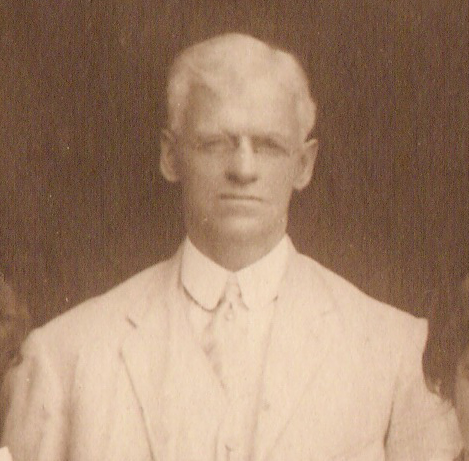Flatt Family - Ourfolk
Anna Flatt (Melvin) ABT 1763 - 24 JAN 1830
Anna was born on ABT 1763 and died on 24 JAN 1830 in Concord, Mass. .
She was the daughter of Mr. Flatt and Ann Beaton (Flatt) (D: 24 JAN 1830).
Anna was married to Amos Melvin .
Amos was born on 15 JUN 1751 in Concord, Mass. and died on 13 AUG 1806 (age: 55) in Concord, Mass. .
He was the son of John Melvin (21 MAY 1721 - ABT 1782) and Hannah Heald (Melvin) (B: 1 APR 1727).
View Family Chart
- - -
| Parents | Grand Parents | |||||||||||||||||||||||||||||||||||||||||||||||||||||||||||||||||||||||||||||||||||||||||||||||||||
| ⌈ Mr. Flatt | ||||||||||||||||||||||||||||||||||||||||||||||||||||||||||||||||||||||||||||||||||||||||||||||||||||
| Anna Flatt (Melvin) | ||||||||||||||||||||||||||||||||||||||||||||||||||||||||||||||||||||||||||||||||||||||||||||||||||||
| ⌈ John Beaton | ||||||||||||||||||||||||||||||||||||||||||||||||||||||||||||||||||||||||||||||||||||||||||||||||||||
| ⌊ Ann Beaton (Flatt) (D: 24 JAN 1830) | ||||||||||||||||||||||||||||||||||||||||||||||||||||||||||||||||||||||||||||||||||||||||||||||||||||
- 'As a member of the Concord Minute Men, he was on guard the gray dawn of
Apr 19, 1775, and as the news came that the British regulars were coming,
he sprang to the little meeting house and, by his vigorous ringing of the
bell, roused the people to a lively sense of their approaching danger'
('Palmer Groups' - Emily Leavitt')
also, Amos went with others from Concord to Boston on an alarm and to
convey stores thence and returned with empty teams in 1777.
Amos appears among the lists of '6 weeks men' in Dec 1775 and Jan 1776,
and among the men forming the first guard at Cambridge.
That Amos married Anna Flatt is well authenticated by their grandchildren,
but the imperfect town books of Concord do not bear the record, only
stating that 'Amos Melvin, husband of Anna, died Aug 13, 1806'.
Amos drew up his will Aug 9, 1806. In it he left his estate in charge of
his wife, who was to take charge of his nine children. Besides property
in Concord, he also owned land in Acton, the adjoining town.
Amos: From 'Battle of Concord', published in 'Our Country'
Apr 19, 1775, and as the news came that the British regulars were coming,
he sprang to the little meeting house and, by his vigorous ringing of the
bell, roused the people to a lively sense of their approaching danger'
('Palmer Groups' - Emily Leavitt')
also, Amos went with others from Concord to Boston on an alarm and to
convey stores thence and returned with empty teams in 1777.
Amos appears among the lists of '6 weeks men' in Dec 1775 and Jan 1776,
and among the men forming the first guard at Cambridge.
That Amos married Anna Flatt is well authenticated by their grandchildren,
but the imperfect town books of Concord do not bear the record, only
stating that 'Amos Melvin, husband of Anna, died Aug 13, 1806'.
Amos drew up his will Aug 9, 1806. In it he left his estate in charge of
his wife, who was to take charge of his nine children. Besides property
in Concord, he also owned land in Acton, the adjoining town.
CONCORD had been aroused. Dr. Prescott had reached the
town twenty minutes after he left Revere and Dawes in the
hands of their captors. He told Amos Melvin, the sentinel at
the Court-house, that the regulars were coming. It was then
about two o'clock in the morning of the 19th of April, 1775.
That scion of a heroic family, who had battled with the French
and Indians in recent wars, seized the bell-rope and rung out
such a vehement alarm that the villagers were all aroused from
their slumbers, and soon filled the streets.
(by Benson J. Lossing in 1877)
town twenty minutes after he left Revere and Dawes in the
hands of their captors. He told Amos Melvin, the sentinel at
the Court-house, that the regulars were coming. It was then
about two o'clock in the morning of the 19th of April, 1775.
That scion of a heroic family, who had battled with the French
and Indians in recent wars, seized the bell-rope and rung out
such a vehement alarm that the villagers were all aroused from
their slumbers, and soon filled the streets.
(by Benson J. Lossing in 1877)
Last change (on this page): 15 OCT 2018
